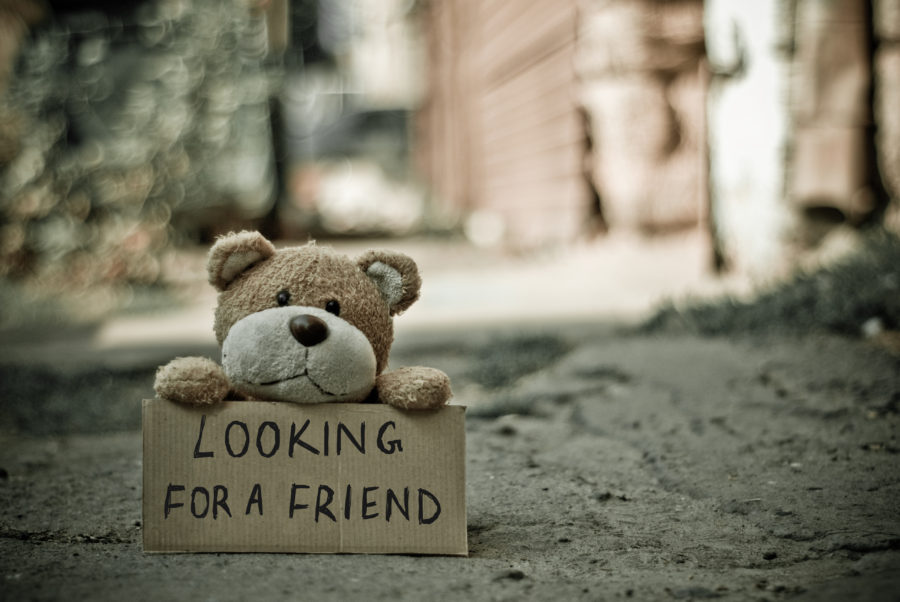
When you get sick, not only do you have to process and deal with all of the medications, symptoms and changes you have to make to treat your illness, but socially you have to withdraw from activities you once loved, making it hard to nurture friendships and relationships with those close to you.
It’s hard for loved ones to understand why you might have to call off your plans last minute or have to leave suddenly during the middle of what might seem like an exciting event. The truth is, they may never understand what you’re going through or what you’re feeling, because they can’t feel it themselves or have no reference for what you are experiencing.
Social Isolation is Serious
People with chronic illnesses often have to make choices for themselves that leave them more socially isolated, which is a risk factor for poor coping, depression, feelings of loneliness and anxiety. Social isolation can even lead to a shortened life span, according to an article on the Association of Health Care Journalists.
Social isolation is a serious concern for people living with chronic illness, especially those in the 24-44 age group. Humans biologically need social contact to thrive. According to an article in Psychology Today, ‘ When we go through a trying ordeal alone, a lack of emotional support and friendship can increase our anxiety and hinder our coping ability.’ A lack of social contact can lead to feelings of depression and anxiety which then leaves you even more isolated – a vicious cycle that can feel hard to escape from.
The Difference Between Social Isolation and Loneliness
Social Isolation is defined as an occurrence when a person lacks opportunities to interact with people while loneliness is the subjective experience of distress over not having enough social relationships or enough contact with people. It is possible for a person with a chronic illness to be socially isolated and not feel lonely and someone with a chronic illness can feel lonely, while not being socially isolated.
There are several issues that people with chronic illness face that can lead to social isolation and feeling lonely:
- Social stigma experienced by people with chronic illnesses that are invisible or by not having a clear diagnosis.
- Physical limitations due to pain or fatigue
- Unpredictability of symptom onset
- Trigger of symptoms related to social gatherings – ie food, noises etc.
- Being estranged from family and friends during the onset of illness or lack of strong support system
- Changes in employment or financial stability
Social isolation and feeling lonely are important health problems and should not be overlooked. In fact, according to the American Psychological Association, social isolation and loneliness may represent a greater public health hazard than obesity and their impact has been growing in the general population. The chronic illness population is at an even higher risk for social isolation and this problem should be addressed along with others symptoms and risk factors.
What You Can Do About It
When you are socially isolated and have feelings of loneliness, it can actually make your chronic illness worse. The longer you are experiencing isolation or loneliness, the more you start to develop feelings of shame, guilt, inadequacy, distrust and abandonment toward yourself and others. The more these feelings grow, the less likely you are to seek out real human connections.
So what can you do when you have a chronic illness and have become socially isolated and experience feelings of loneliness?
1) Recognize what it is, Name it and start to understand what it is doing to your mind and body.
2) Retrain your inner self talk to become more positive and rational. This can be done with the help of a therapist and over time, can be changed.
3) Fight the temptation you have to isolate yourself and recognize situations where that is your ‘go-to’ behavioral response. Do the opposite of what you feel comfortable doing, such as retreating to your bedroom, and replace it with something social, such as having coffee with a friend in a coffee shop, for starters.
4) Get rid of those negative people in your life who only feed the negative inner voice you have. Build a support system filled with only positive people who are patient and kind and seek to understand what you are going through on a deeper level.
5) Try one new thing each week that will get you to meet new people. Try a creative painting class, take a yoga class, go to the library.. anything that will get you to meet new people who like doing things that you like to do.
6) Seek out a support group in your community for your illness. This is a great way to meet people who really DO understand what you’re going through and can be a great support for you.
7) Make sure you’re communicating what you need appropriately. A lot of the time when we retreat to isolation, we are doing so because we don’t want to burden others. Our friends and family often feel helpless because they don’t know what we need them to do to help us – so tell them! It not only helps you feel more supported, but helps those close to you feel useful and helpful.
8) Talk to a therapist or counselor – therapy can really help you explore any deeper issues that might be contributing to loneliness or social isolation. Therapy can also be a great accountability and skills training support to help you manage all of the difficult things you are going through in a safe way.
Do you live in Florida and think you’re ready for therapy? I am currently accepting new clients both in my st. petersburg, fl office AND online from anywhere in Florida! Contact me below and share with me how I can help you!
Want to learn more? Sign up for our email list below to get premium access to online courses, new blog posts and educational content! Once you sign up, you will get our FREE GIFT: The Stress Reduction Activities Worksheet!
Amanda Pratt, LCSW
Amanda is a licensed clinical social worker in private practice in St. Petersburg, Florida specializing in working with people living with chronic illness. She is currently accepting new clients at her website www.imaginelifetherapy.com.


Comments are closed.